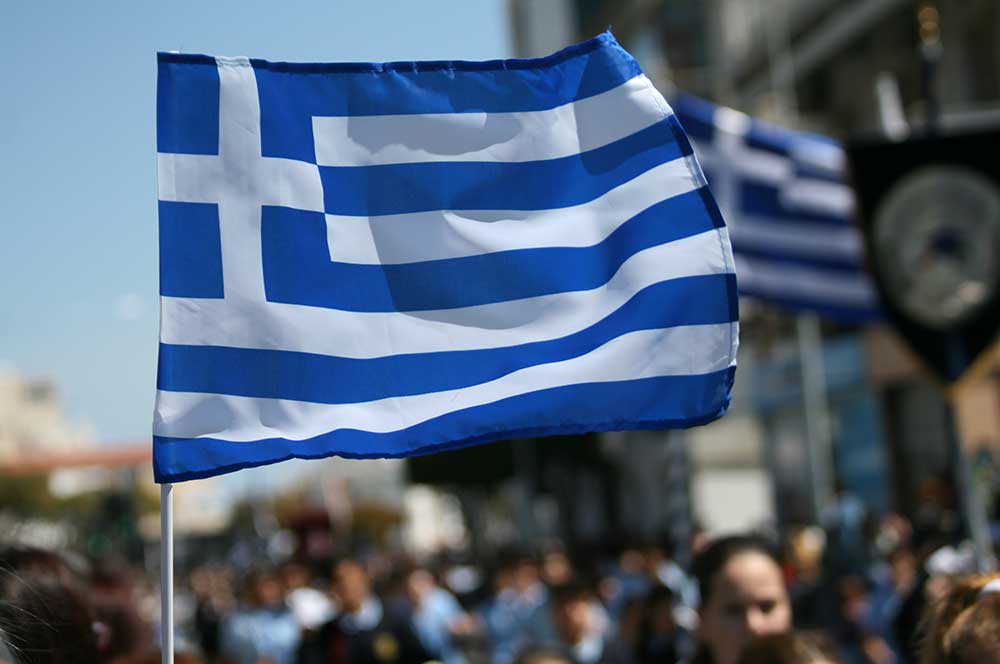Could an entire industry change over the course of a few days just before Christmas? The short answer is yes, and a recent example from Greece demonstrates the power of potentially lobbyist legislative changes that can put an entire sector on its knees.
In his 2020 annual report, chairman of the board of the Hellenic Advertisers Association Grigoris Antoniadis wrote that the industry faced significant challenges over the course of the year, including the impact of the Covid-19 pandemic. One change that occurred in December, however, shook the entire Greek advertising community.
On December 23, 2020, the Hellenic Parliament passed a new law on its last working day. L.4764, especially Article 189 of the new legislative document, didn’t enter debate before being passed directly to the Ministry of Health and signed off into a law. Media experts immediately reacted by claiming the new law resulted from intense lobbying on behalf of media owners.
What exactly changed since then, and why did a single article cause such an uproar within the advertising community?
Essentially, the new law legitimises all of the demands that media owners have had for some time.
Before the passing of the law, responsible legislators failed to consult industry representatives like the Hellenic Advertisers Association or other organisations standing for the rights of advertisers. The entire process, from scratch to finish, took about one week. Just before Christmas, Greeks woke up to a brand new and quite scandalous media law.
The law affects just about every aspect of the relationship between media owners, media agencies and advertisers. It takes away a lot of the negotiating power and access to relevant data that agencies and advertisers previously relied on.
But taking a look at the larger context paints an even more troublesome picture. The new law destroys transparency during media buying and pitching process. When examined more thoroughly, such changes can easily kill healthy competition and create oligopoly positions for specific market players.
Article 189: Killing Advertising Slowly
Advertisers in Greece will suffer three very profound negative effects linked to Article 189.
1. Pool Benchmarking No More
Media auditing has long been an important process aimed at giving advertisers important information about the potential performance of their campaign.
The new article in the Greek law prohibits the so-called pool benchmarking, a key part of media auditing.
Pool benchmarking refers to auditors running market samples – sets of data pertaining to representative advertisers. When such data is analysed and pooled together, prospective advertisers can use this service to understand how competitive their media prices are against a representation of the market average (i.e the pool) in relation to the media quality bought.
This part of the law is rendering the jobs of media auditors and consultants useless. It’s easy to see how much of an effect on the industry (and on its clients) such a prohibition can have.
2. Prohibited Data Exchange
By prohibiting pool benchmarking, Article 189 makes it very difficult for advertisers to arrive at educated decisions.
Media buying is a complex process. It involves lots of considerations and metrics that will be readily available in typical circumstances. The new law eliminates these conditions for adequate decision making. This is why Antoniadis termed the process following the passage of the law “blind dating.”
“Remember the blind date? But this is not a date; it is a violation of the principles of healthy competition and positive transparency, which works in favour of the market,” his statement reads.
Such a ban is completely unreasonable. It also violates the principles of healthy competition and transparency within the media market.
As of now, media agencies, advertisers and media owners can no longer exchange information pertaining to the inflation rate, market prices, spending and other important metrics. So, if an advertiser decides to move forward with media buying, they will have no intelligence to support their decisions.
Information exchange has proven to be the backbone of market expansion in numerous industries. It allows for a better understanding of customer needs and the subsequent tailoring of products and services. In the absence of extensive information, educated guesses will be insufficient to move the media market forward in a way that clients have come to anticipate.
3. Illogical and Unreasonable Contractual Obligations
The new media law forces agencies to get a written cost agreement with a media owner before making the contract.
What this means is that agencies are kept from offering their own prices in pitches before a written contract with the vendors (media owners) is signed. Anyone who knows the ins and outs of the industry understands the tricky situation that such a stipulation creates.
This new requirement makes it impossible for media agencies to provide media price commitments during a media agency pitch.
Such practices are also in direct contradiction with fair competition directives, as mandated by relevant European Union authorities.
A Profound Media Shakeup with Potentially Devastating Consequences
The three effects mentioned above are just an initial overview of how Article 189 will restrict fairness and transparency in the media world. The long-term effects of the legislative change could be quite devastating, especially taking into consideration the fact that many key questions about standard media buying processes remain unanswered.
Greece’s new media law is creating a ton of confusion among advertisers, media agencies, auditors and other industry representatives. Some advertisers have already contacted their media agencies to understand this new law's direct consequences to their agreements with them. "Business as usual" one agency replied to their client. Even some local media owners have come forward to voice objections, even though the law is entirely formulated to protect their interests.
Fair competition and transparency go out the window. In such a scenario, only a couple of players that maintain oligopoly positions are likely to benefit.
The fact that the law itself was passed quickly, without legislative discussion and over the parliament’s last working day is indicative enough of the framework’s unfair nature.
Obviously, the law will favour a select group of media owners who will utilise the restrictions to keep their prices up. Fixing prices, however, does not work in a liberal, competitive market that follows liberal capital principles.
The law also contradicts the European law on fair competition and Free Trade Rules. The anti-transparency efforts aren’t even disguised, and they stand front and centre under Article 189.
It is a shame and a pity that the law goes against free world practices, and ironically, it is emerging when Greece is celebrating 200 years of the republic’s independence. The nation that birthed Western values and democratic principles is now being victimised in a rather unacceptable way.
If you need any assistance in relation to this new law, and how it impacts your business, please feel free to reach out to us. We will be very happy to help you out.



